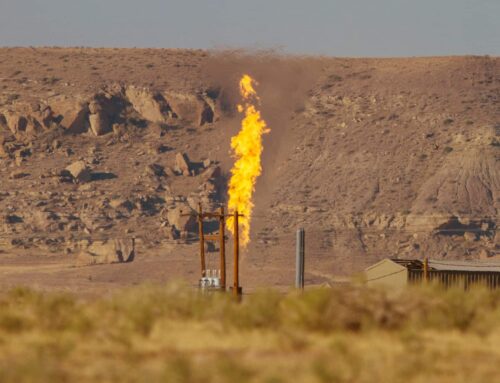Today Taxpayers for Common Sense sent a letter to each member of the House and Senate urging them to oppose any legislative actions to increase subsidies and loan guarantees for new nuclear reactors during this year’s appropriations and energy and climate debates. Despite 60 years of generous taxpayer subsidies, nuclear power remains one of the most capital intensive, high-risk energy industries. Nuclear power is a mature energy industry and taxpayers should no longer be asked to bear the risk for nuclear power.
See a version of our letter below.
|
New Analyses Provide Further Evidence That High Cost of Nuclear Power Should Not be Shouldered by U.S. Taxpayers Dear Senator, Several new analyses confirm that, after over half a century of operation, nuclear power remains one of the most capital intensive, high-risk energy industries. Despite this checkered past, industry proponents have suggested that nuclear power could be a cost-effective solution in a carbon constrained world. In order to fund the resurgence of nuclear power, several proposals to dramatically increase subsidies for the industry have emerged. Taxpayers for Common Sense urges you to oppose these proposals, including the expansion of loan guarantees for new reactors. The Department of Energy’s Loan Guarantee Program already has $18.5 billion authorized for Treasury-backed loan guarantees for new nuclear reactors. The default rate on these loan guarantees has been estimated at 50%. But this could only be the beginning of billions more in risk as the nuclear industry has already submitted more than $120 billion in loan guarantee requests. While we take no position on whether or not nuclear power should be part of the nation’s energy future, we strongly believe it should not continue to be subsidized by taxpayers. For decades, taxpayers have been asked to shoulder much of the cost of nuclear power and adding on more subsidies in the current economic climate will guarantee the loss of billions down the road. Since 1948, the nuclear power industry has received more than $85 billion in generous taxpayer subsidies and continues to risk billions more in liability coverage. In the 1960s and 1970s, billions of dollars were lost in canceled and abandoned reactors. And today, subsidizing the construction of new reactors is no more promising. Nuclear power’s past problems, which include cost overruns, issues with regulations, and construction delays, continue to be unresolved. A recent report by Mark Cooper, a senior fellow for economic analysis at the Institute for Energy and the Environment at Vermont Law School, reviewed three dozen studies on the cost of new reactors since the early 2000s, as well as the cost of currently-built reactors. He found current estimates for new reactors are already four times higher than estimates earlier this decade. Using the numbers from these studies, which ranged from 12 cents per kilowatt-hour to 20 cents per kilowatt-hour for new reactors, he calculated that the cost of building 100 new reactors would range from an additional $1.9 trillion to $4.4 trillion over the life of the reactors compared to providing the same energy with efficiency and renewable technologies. Furthermore, Cooper affirms that both Wall Street and utilities agree that it will take “massive direct subsidies” in order to build the reactors. Recently, former NRC Commissioner Peter Bradford stated that federal loan guarantees do not actually lower risk, but merely shift the risk from investors to taxpayers. The risks of cost overruns, availability of cheaper alternatives, cancellation, or an accident remain what they were. All that is changed is the party who bears these risks. Even having taxpayers take on all of this risk, however, may be insufficient to maintain a utility’s credit rating. According to a June 2009 Moody’s update, loan guarantees “will only modestly mitigate increasing business and operating risk profile.” As a result, “the likelihood that Moody’s will take a more negative rating position for most issuers actively seeking to build new nuclear generation is increasing.” As these new analyses demonstrate, the cost and risk of nuclear reactors is increasing and with it the demand for subsidies. Already the nuclear industry has made it clear they are seeking more than $100 billion in taxpayer handouts to fund the construction of new reactors. Nuclear power is a mature energy industry that should no longer be subsidized and should secure financing on the private markets. We urge you to oppose any legislative actions to increase subsidies and loan guarantees for new nuclear reactors during this year’s appropriations and energy and climate debates. After more than 60 years of subsidies, taxpayers should no longer be asked to bear the risk for nuclear power. Sincerely,
Ryan Alexander
An independent watchdog for the taxpayers of today and tomorrow |











